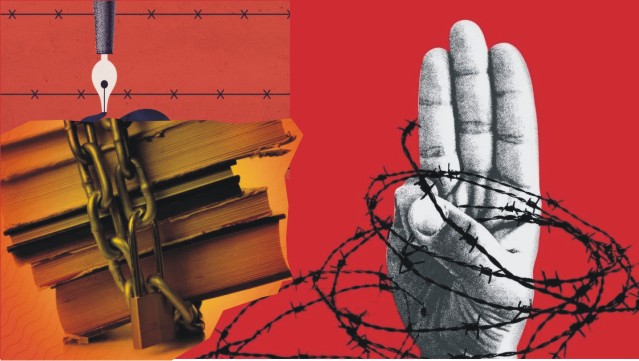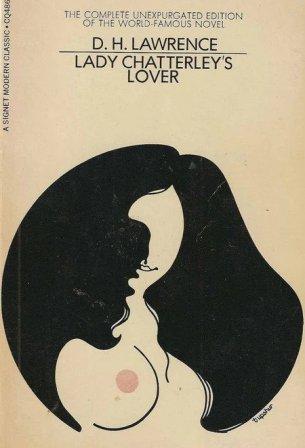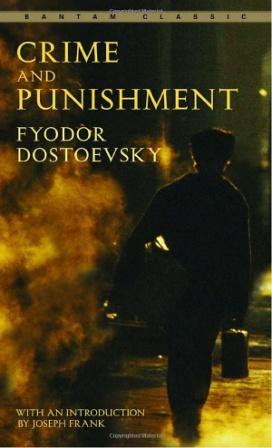

Some time back a Bombay High Court Judge allegedly asked Vernon Gonsalves, an accused in the Bhima Koregaon case (which is still going on in India 5 years after the incident), why he had a copy of a book ‘War and Peace in Junglemahal’ (a collection of essays on a revolutionary organisation in India, edited by Biswajit Roy) and the CD ‘Rajya Daman Drohi’, which is a film against state repression, in his home.
The fact that judges and policemen are taking such a keen interest in our reading habits suggests that those who read books, like me, are likely to get into trouble one of these days. I know I will, given what’s on my bookshelf.
Here is what I have:
 Dickens’ Tale of Two Cities, which is set in the background of the French Revolution of 1789, and Hemingway’s For Whom The Bell Tolls, set in the background of the Spanish Civil War (with obvious sympathy for the Republicans), so I may be accused of preaching revolution and sedition.
Dickens’ Tale of Two Cities, which is set in the background of the French Revolution of 1789, and Hemingway’s For Whom The Bell Tolls, set in the background of the Spanish Civil War (with obvious sympathy for the Republicans), so I may be accused of preaching revolution and sedition.
Quiet Flows the Don by Mikhail Sholokhov, Maxim Gorky’s Mother, and John Reed’s Ten Days Which Shook the World are set in the background of the Russian Revolution of 1917, so I may be charged with Bolshevism and insurrection.
Les Miserables by Victor Hugo refers to the French Revolution of 1830 and speaks favourably of the French Revolution of 1789 (in the chapter ‘The Conventionist’ or ‘The Bishop in the presence of a New Light’).
The Robbers by Friedrich Schiller seems to preach revolution. So do the works of Rousseau and Thomas Paine.
 Sarat Chandra Chattopadhyaya’s Pather Dabi refers to a revolutionary organisation, and was banned by the British (the price of one copy at one time was said to be the price of a Mauser pistol).
Sarat Chandra Chattopadhyaya’s Pather Dabi refers to a revolutionary organisation, and was banned by the British (the price of one copy at one time was said to be the price of a Mauser pistol).
Much of Urdu poetry sounds revolutionary e.g. ‘Hum Dekhenge’ by Faiz, and ‘Kya Hind ka Zindaan Kaanp Raha Hai’ by Josh, so Urdu poetry books are dangerous.
Grapes of Wrath by John Steinbeck seems to preach agrarian revolution.
Edgar Snow’s books Red Star Over China and Red China Today, are sympathetic to the Chinese Communist Revolution.
Dickens’ novels may stir up public discontent against the prevailing social order, as do works of Upton Sinclair,
Pablo Neruda, Shaw, Premchand, Kazi Nazrul Islam and Subramania Bharathi, which all I have in my bookshelf.
 Lady Chatterley’s Lover by D.H. Lawrence, Mrs Warren’s Profession by George Bernard Shaw, the short stories of Maupassant and Manto, the Rubaiyats of Omar Khayyam and a lot of Urdu poetry may appear to His Lordship to be obscene, lascivious, salacious or lewd, and calculated to deprave.
Lady Chatterley’s Lover by D.H. Lawrence, Mrs Warren’s Profession by George Bernard Shaw, the short stories of Maupassant and Manto, the Rubaiyats of Omar Khayyam and a lot of Urdu poetry may appear to His Lordship to be obscene, lascivious, salacious or lewd, and calculated to deprave.
1984 by George Orwell may appear to mock the government established by law.
The Prince by Machiavelli may seem to advise deceit, trickery and other actions that may be used against the state.
Crime and Punishment by Fyodor Dostoevsky, and stories by Edgar Allan Poe, Dashiel Hammett, etc may spread criminal behaviour in society by treating crime as a subject of entertainment rather than a serious problem confronting law enforcement agencies and the judiciary.
 Candide, Zadig etc by Voltaire, and Brothers Karamazov by Dostoevsky may appear blasphemous.
Candide, Zadig etc by Voltaire, and Brothers Karamazov by Dostoevsky may appear blasphemous.
Anna Karenina by Tolstoy and Madame Bovary by Gustave Flaubert may be seen as abetting suicide, which is a criminal offence under the Indian Penal Code.
The Quiet American by Graham Greene may appear to be incitement to terrorism.
The Tamil classic Silappadikaram may be said to contain objectionable inflammatory material, as it refers to Kannagi burning the entire city of Madurai.
So to make life easy for the police, the judiciary and other state authorities, I recommend that all these works be immediately banned in India. ![]()
___________
Also Read:
Industrialization versus Environmental Degradation
Centre’s Opaque Auction Rules For Pulses Rip Off Govt Coffers, Help Millers Strike Rich
Need to amend laws like UAPA to provide for punishment for those who slap false cases
Global Arms Trade: Who are the real winners?
Why not 40 pc tickets for women in Punjab and elsewhere?
Punjab – How a deadly cocktail of Agri-Water-Energy nexus going to destroy it?
North Pole and the ideological conflict of RSS & Hindutva
Politics of Symbolism: Dalit Chief Ministers in India

Disclaimer : PunjabTodayTV.com and other platforms of the Punjab Today group strive to include views and opinions from across the entire spectrum, but by no means do we agree with everything we publish. Our efforts and editorial choices consistently underscore our authors’ right to the freedom of speech. However, it should be clear to all readers that individual authors are responsible for the information, ideas or opinions in their articles, and very often, these do not reflect the views of PunjabTodayTV.com or other platforms of the group. Punjab Today does not assume any responsibility or liability for the views of authors whose work appears here.
Punjab Today believes in serious, engaging, narrative journalism at a time when mainstream media houses seem to have given up on long-form writing and news television has blurred or altogether erased the lines between news and slapstick entertainment. We at Punjab Today believe that readers such as yourself appreciate cerebral journalism, and would like you to hold us against the best international industry standards. Brickbats are welcome even more than bouquets, though an occasional pat on the back is always encouraging. Good journalism can be a lifeline in these uncertain times worldwide. You can support us in myriad ways. To begin with, by spreading word about us and forwarding this reportage. Stay engaged.
— Team PT


Copyright © Punjab Today TV : All right Reserve 2016 - 2025 |